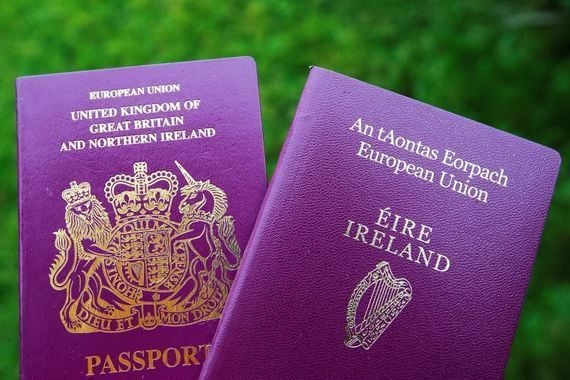Statistics from the Northern Ireland National Identity Census 2021 reveal that there has been an increase in the number of people who identify as Northern Irish or Irish.
In Census 2021, 814,600 people (42.8%) living in the country identified solely or along with other national identities as ‘British’. This is down from 876,600 people (48.4%) in 2011. While 33.3% identify as ‘Irish’, an increase from 28.4%
in 2011. Those who identify as 'Northern Irish' was 31.5%, up from 533,100 people (29.4%) in 2011.
A large number of people recorded a combination of national identities. The main multiple national identities were ‘British and Northern Irish’, ‘Irish and Northern Irish’, and ‘British, Irish and Northern Irish’.
If the respondent noted they were ‘British and Irish’ they were counted under both the ‘British’ and ‘Irish’ groups. The statistics also showed the number of people who identified with one nationality. The number of people who identify as
This shows a fall in the number of people who identify as ‘British only’ fell from 39.9% to 31.9%. In contrast, there has been a rise in the number of people who identify as ‘Irish only’, up from 457,500 to 554,400.
The fastest growing group proportionately is those people with ‘Other National Identities’ - typically from outside UK and Ireland. This is up from 61,900 people in 2011 to 113,400 people in 2021.
Previous 2021 Census results show that Northern Ireland now has more Catholics than Protestants. This is the first time in 101 years, since census records began, that Catholics have outnumbered Protestants.
The 2021 census also shows that there has been an increase in the number of people in Northern Ireland holding an Irish passport. These figures increased from 375,800 people in 2011 to 614,300 people in 2021. That is an increase of 63.5%, consistent with the increased demand for Irish passports since Brexit. The numbers holding a UK passport solely or jointly decreased slightly from 1.07 million in 2011 to 1 million.




Comments